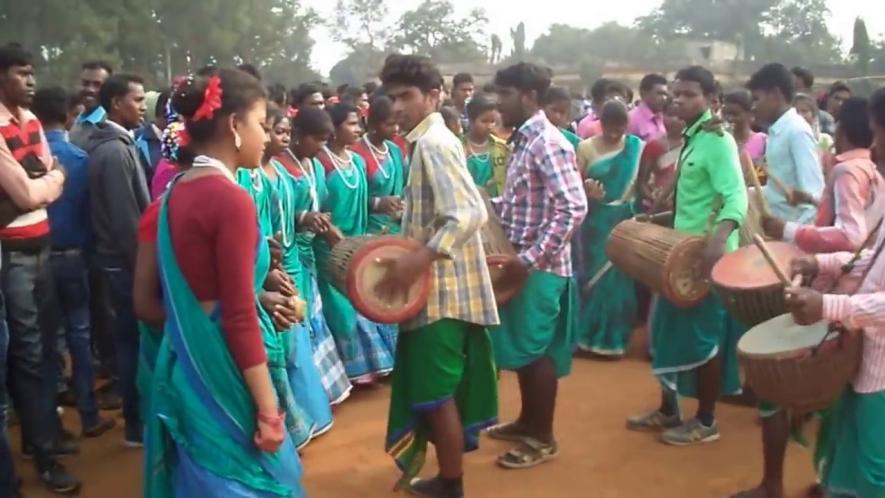Professor Targeted for Criticising Sexual Harassment During Sohrai Festival in Jharkhand

Image for representational purpose. Credit: Santhal National Sohrai Festival/Facebook
For Rajni Murmu, it’s a never-ending battle for justice as she understands the true meaning of identity and honour and how a community follows patriarchal tools to silence those who are challenging it. Murmu, an assistant professor at Godda College, Godda in Jharkhand landed in a trouble when she expressed her opinion about sexual harassment meted out to young girls of Santhal community during the festival Sohray.
Murmu, in her post, had written: “[I]n Santhal Pargana, the Santhal community’s biggest festival of Sohrai is celebrated with much fervour. The villages choose one day for celebrations between 5th January and 15th January as per their convenience. The festival is celebrated for five days. What makes this festival special is the collective dance of men and women. In this dance, every resident of the village participates. Children join their parents too. When Santhals shifted to cities, they kept the tradition alive by observing one-day Sohrai. The responsibility of organising this dance was taken up by the students of government colleges. I have attended Sohrai twice, organised in the grounds of S P College Dumka. I observed that the boys indulged in indecent behaviour. During the dance, they come so close to the girls that it becomes difficult for them to dance. I even heard that some senior boys in college forcefully drag new girls into bushes. Even the organisers ignore these incidents carelessly.”
The post evoked sharp reactions from other members of the community who termed the post ‘insulting’ with some people registering a police complaint and handing a memorandum to Vice Chancellor Sona Jharia Minz for terminating the services of Murmu. Talking to NewsClick over phone, Murmu said that the patriarchs of the community have been maintaining a deafening silence on the harassment and abuse where the women of the community have been at the receiving end.
She said, “For years, we have been listening to the rhetoric that women play a dominant role in tribal communities and they are revered and respected for their contribution. But it is not true. The women here are also harassed. In this context, I wrote the post based on my observation. Naturally, it enraged some students who lodged a complaint with the local police. Now, they are also calling for my bitlaha (social ostracisation) where I would cease to be a member of the community and other members would not maintain any relations with me.”
“I am noticing a new trend in tribal communities – particularly in Jharkhand, Chhattisgarh and some parts of Northeastern states where tribal women are being targeted for marrying outside their fold with some people reporting to their offices for termination of their services,” she added.
Shyam Dev Hembram, Rajendra Murmu and other student leaders, in their complaint, have maintained that Murmu insulted the community by highlighting the social ills in the outside world and that she should have talked to the organisers if she found something objectionable. Responding to this, Murmu said, “I did try to highlight the matter, but I was systematically ousted from all platforms including WhatsApp and Facebook groups.”
Jacinta Kerketta, noted Tribal poet and activist, has come out in support of Murmu. In a social media post, she wrote, “In Tribal communities, people would not express resentment when a male member becomes corrupt, a rapist, violent or a murderer, but all energy would be directed against a woman. If she is engaged in a job, the attempts would be to deprive her economically.”
Sido Kanhu University’s vice chancellor did not respond to calls for her comments on the matter.
Get the latest reports & analysis with people's perspective on Protests, movements & deep analytical videos, discussions of the current affairs in your Telegram app. Subscribe to NewsClick's Telegram channel & get Real-Time updates on stories, as they get published on our website.
























